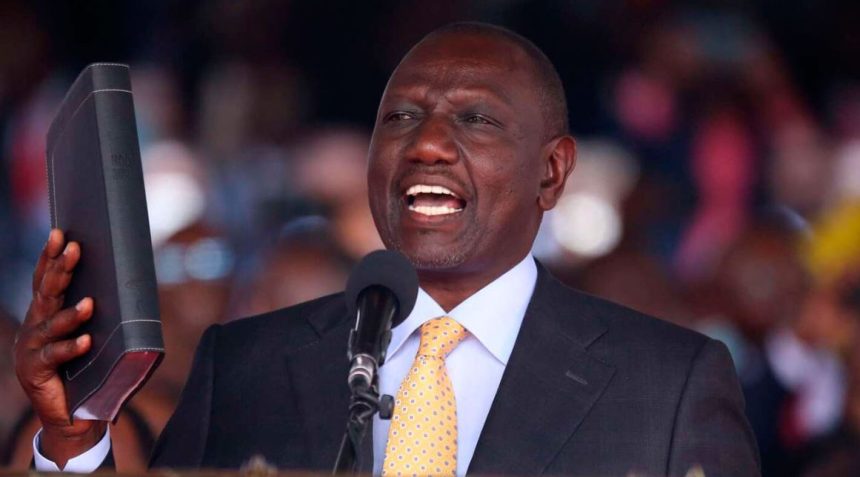The presidency said on Friday that Kenyan President William Ruto had suspended four election commissioners who had refused to recognise his victory in an August poll and had established a panel to look into whether they ought to be fired.
The move comes after the national assembly requested that Ruto convene a trial against Commissioners Juliana Cherera, Justus Nyang’aya, Irene Masit, and Francis Wanderi. It has opened a new front in the conflict between the government and the opposition in the largest economy in East Africa.
The veteran opposition leader Raila Odinga, who barely lost the election in August and ultimately accepted the outcome, disagreed with Ruto’s decision to take action against the dissident commissioners.
“They (Ruto’s government) have started a scheme to remove the four who stood for justice,” Odinga said on Friday and accused Ruto of trying to seize control of the management of the next election at the cost of acting on the promises he made to Kenyans.
“They want to appoint their own members of the commission to carry out their rigging in 2027,” Odinga said, vowing to hold public rallies to consult with Kenyans on the next steps.
According to him, the first meeting will take place in Nairobi on December 7 and the second will take place there on December 12.
When Reuters requested a response from Ruto’s office regarding the accusation, they did not do so right away.
Justus Nyang’aya, one of the commissioners, announced his resignation later on Friday, according to local media.
“I have always endeavoured to act in the best interests of the country, although my actions, taken in good faith, have been misconstrued,” Nyang’aya wrote in a letter to Ruto, according to Citizen TV.
An enquiry for comment was not immediately answered by Nyang’aya.
On August 15, the four commissioners convened a separate press conference to express their inability to watch the chairman and the other two commissioners announce the results live on television.
The case went to the Supreme Court, which confirmed Ruto’s victory and disproved the four candidates’ claims that the voting procedure was convoluted.
The court determined that the commissioners’ “boardroom spat” had eroded public confidence, but it was insufficient to nullify the election.
However, it demanded that the Independent Electoral and Boundaries Commission be reformated (IEBC). On Friday, the IEBC was not immediately available for comment.
The four commissioners and the opposition that is supporting them both refused to take part in the parliamentary investigation into their behaviour, claiming it amounted to a “kangaroo court” trial.
Cherera, who serves as the IEBC’s vice chair, did not immediately respond to Reuters’ request for comment. Masit and Wanderi were unable for remark right away.





